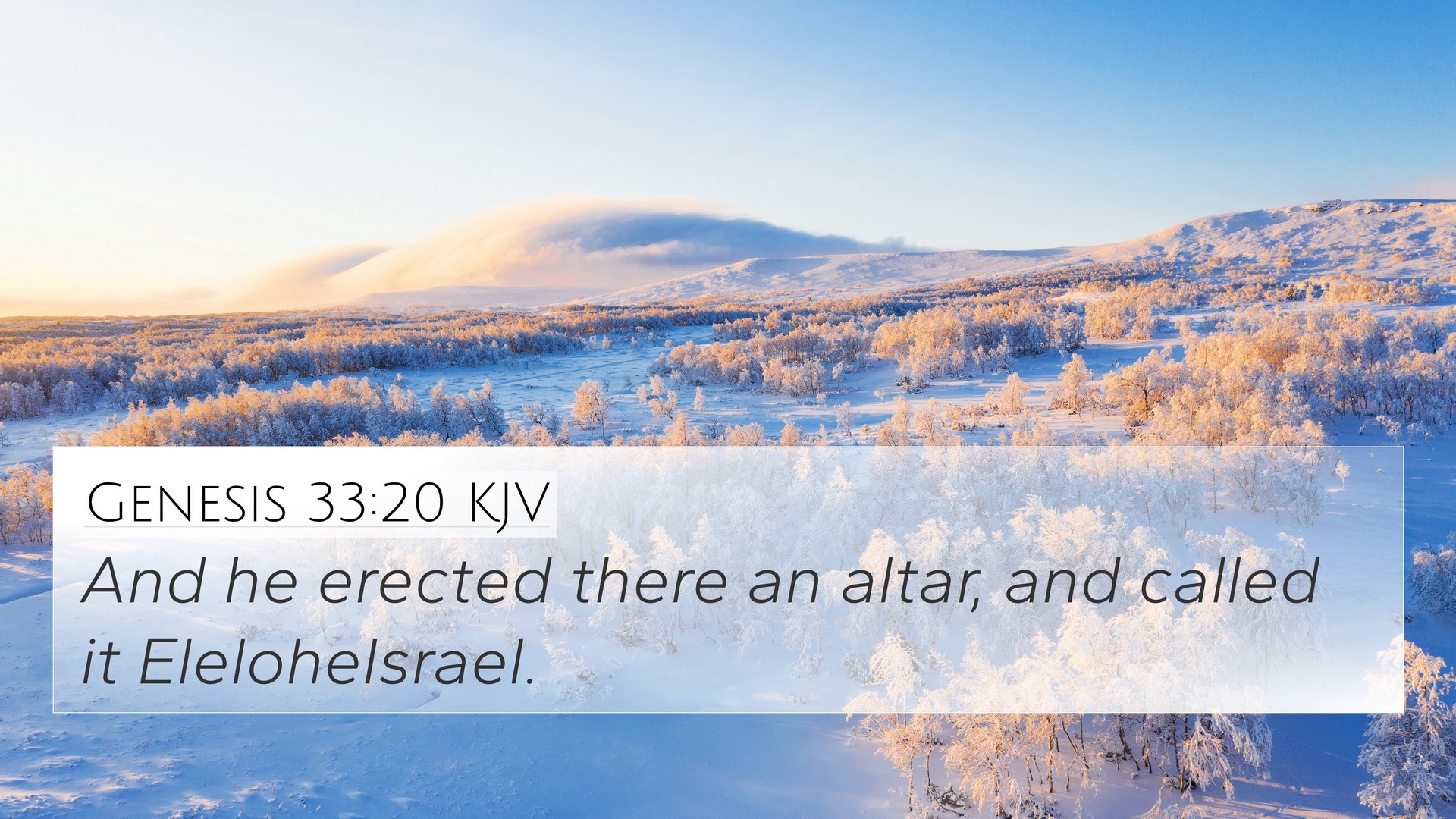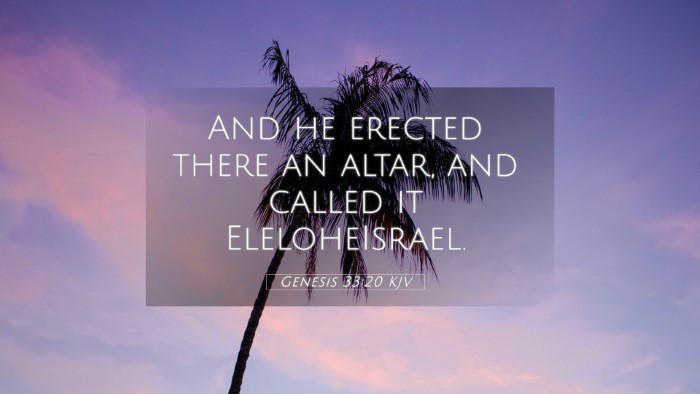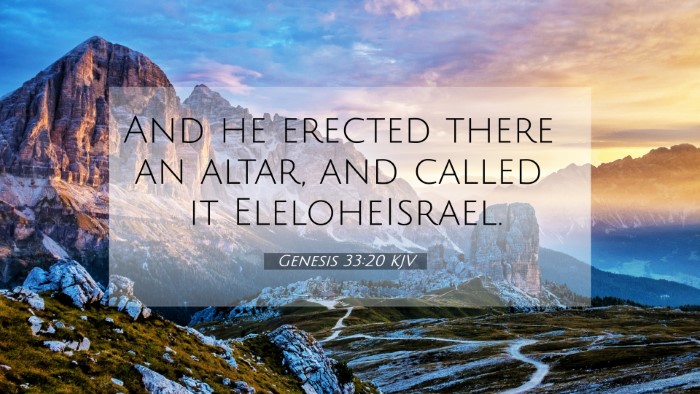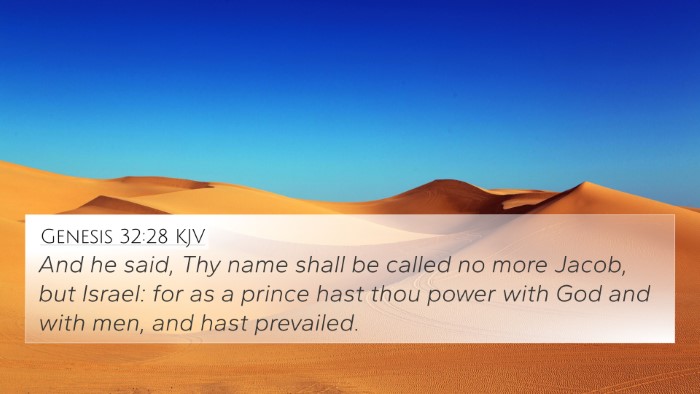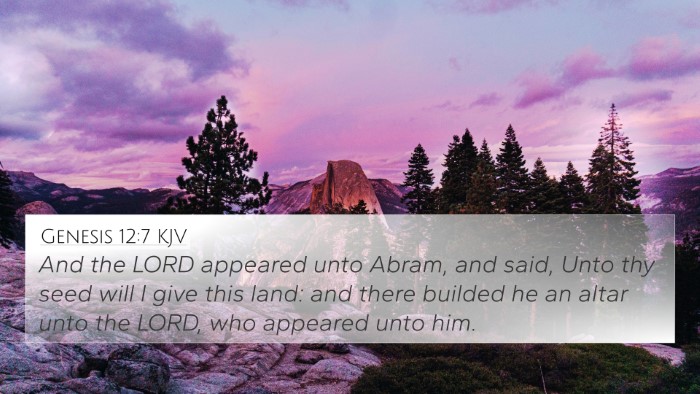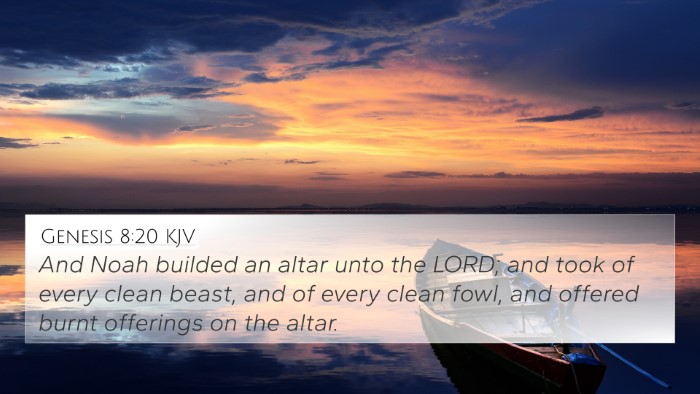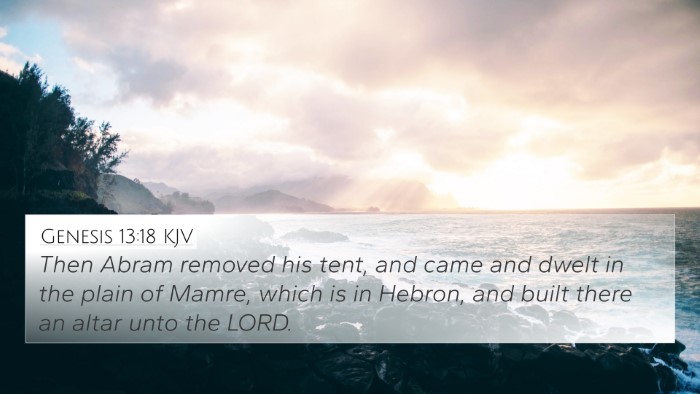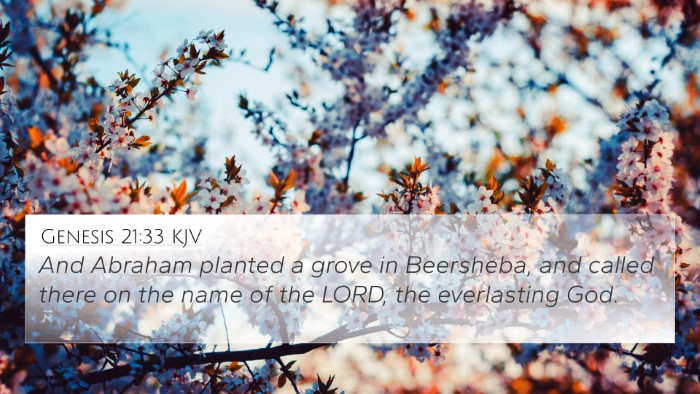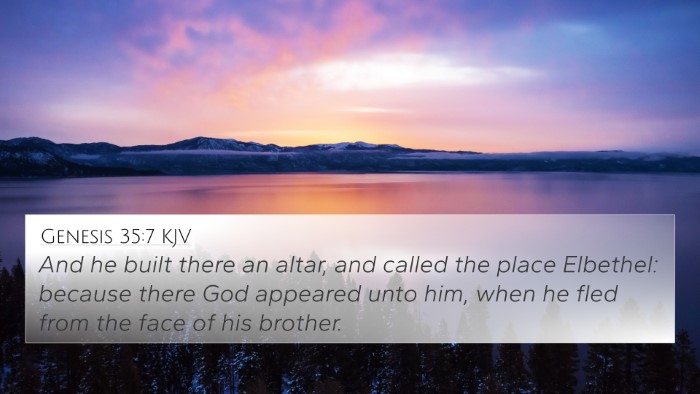Understanding Genesis 33:20
Genesis 33:20 states, "And he erected there an altar, and called it Elelohe-Israel." This verse is rich in meaning and significance, revealing vital insights into Jacob's life and faith journey. Commentaries by Matthew Henry, Albert Barnes, and Adam Clarke provide an in-depth analysis of this scripture.
Summary of Insights
The act of erecting an altar signifies Jacob's acknowledgment of God's protection and presence. It illustrates a response of worship and gratitude for God's faithfulness. Here are key elements drawn from public domain commentaries:
-
Matthew Henry:
Henry emphasizes the importance of worship through the construction of altars in the Old Testament. By naming the altar "Elelohe-Israel" (meaning "God, the God of Israel"), Jacob is recognizing that God is not only his personal God but also the God of the nation that will arise from him.
-
Albert Barnes:
Barnes highlights the cultural context of altars, signifying communication with God. Jacob's act of dedicating the altar to God reinforces the theme of divine relationship, marking it as a significant milestone in his spiritual journey and in the history of Israel.
-
Adam Clarke:
Clarke elaborates on the significance of the name given to the altar. By calling it "Elelohe-Israel," Jacob expresses his acknowledgment of God's role in his life and lineage, which foreshadows the future covenant and restoration of Israel.
Thematic Connections
Genesis 33:20 serves as a reference point for various themes throughout the Bible, such as worship, covenant, and God's faithfulness. Below are other relevant scripture connections:
- Exodus 20:24: "An altar of earth thou shalt make unto me..." - This verse establishes the foundation for worship through altars.
- 1 Samuel 7:12: "...and Samuel took a stone, and set it between Mizpeh and Shen, and called the name of it Ebenezer..." - The idea of commemorating God's help is echoed here.
- Psalm 46:1: "God is our refuge and strength..." - Aligns with Jacob's acknowledgment of God's protection.
- Hebrews 11:21: "By faith Jacob, when he was a dying, blessed both the sons of Joseph..." - Reflects Jacob's lasting faith in God's promises.
- Genesis 28:16-17: Jacob's initial encounter with God shows the beginnings of his faithful journey.
- Genesis 35:1: God commands Jacob to build another altar upon returning to Bethel, tying these acts of worship together.
- Acts 7:44: Refers to the tabernacle of witness in the wilderness, linking the concept of God's presence with altars in the history of God's people.
Cross-Referencing Biblical Texts
Utilizing cross-references can deepen the understanding of Genesis 33:20. Here are tools and methods for effective Bible cross-referencing:
- Bible Concordance: Helpful in locating verses that share similar themes or terms.
- Bible Cross-Reference Guide: Provides insights into connections between Old and New Testament scriptures.
- Cross-Reference Bible Study: Engaging in detailed studies of related verses enhances comprehension.
- Identifying Connections: Observing patterns between the Old and New Testament can yield richer insights.
- Comprehensive Bible Cross-Reference Materials: Available resources can assist in linking verses thematically.
Conclusion
The act of Jacob building an altar in Genesis 33:20 is a profound statement of worship and recognition of God's role in his life. It serves as a reminder of the deep-rooted tradition of altars representing the relationship between God and His people.
Understanding this verse through cross-referencing and comparative analysis aids in grasping the intricate web of themes throughout the Bible. The call to worship, the recognition of God's protection, and Jacob's acknowledgment of God as "Elelohe-Israel" highlight the fundamental nature of faith expressed through actions.
